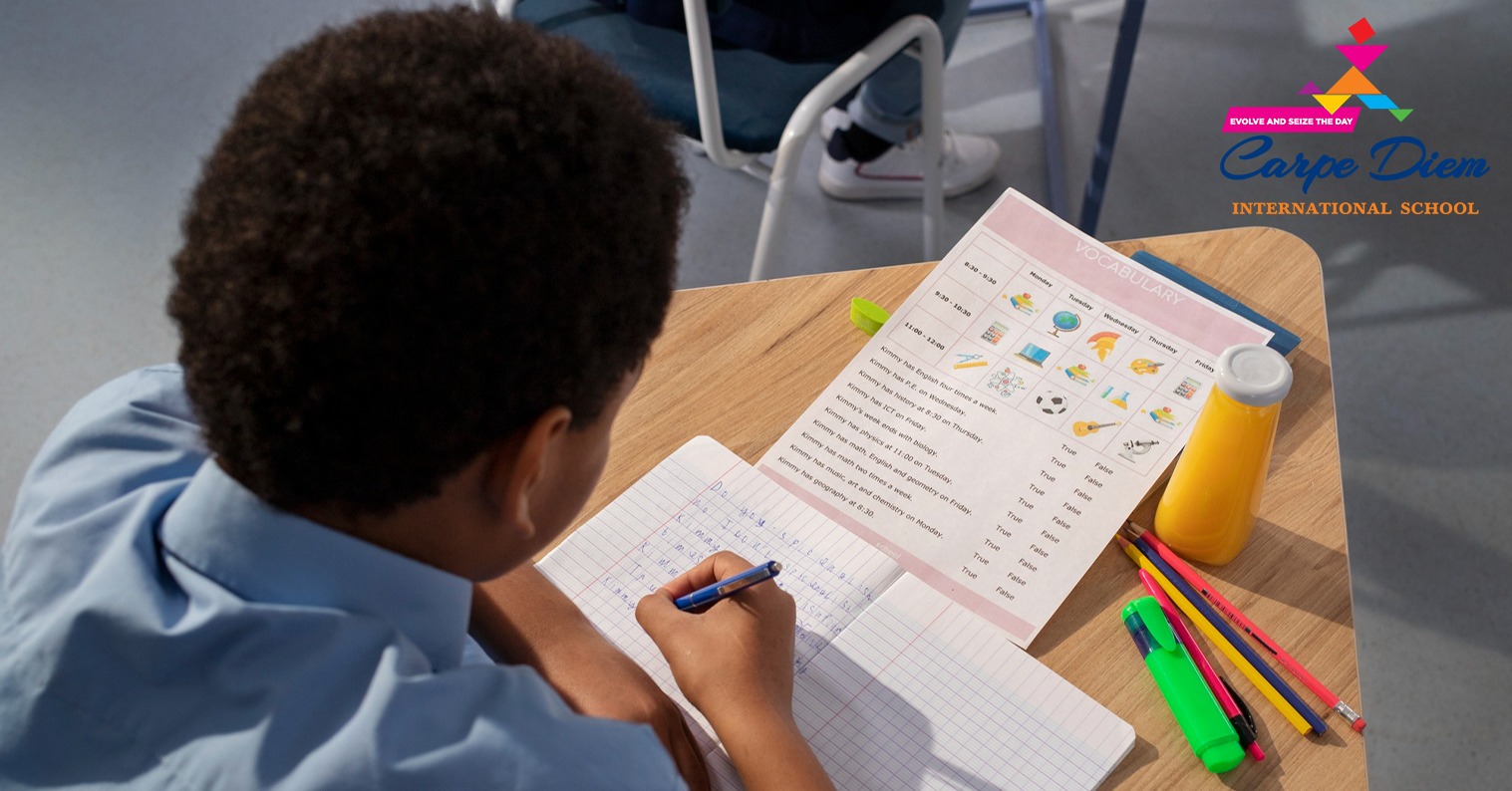
25 Jul Note-Making Strategies for Efficient Study Sessions
Effective note-making is a vital skill for students, enabling them to enhance their learning and retention. At Carpe Diem International School, one of the Best CBSE School in Rajpura, we understand the significance of efficient study techniques. In this blog, we will explore various note-making strategies that can help students optimise their study sessions and achieve academic success.
1. Understand the Purpose of Note-Making: Before diving into note-making techniques, it’s essential to understand why we take notes. Note-making serves as a tool to capture and summarise key information, aiding comprehension, retention and revision. By creating organised and concise notes, students can effectively review and reinforce their understanding of the subject matter.
2. Active Listening and Engagement: Active listening is the foundation of effective note-making. Encourage students to be fully engaged during lectures or class discussions. By actively participating, asking questions, and clarifying concepts, they can identify the most important information to include in their notes. Active listening also helps students to grasp the context and meaning behind the content, enabling them to create more meaningful and comprehensive notes.
3. Structure and Organisation: The way notes are structured and organised plays a crucial role in their usefulness. Encourage students to create a clear hierarchy by using headings, subheadings, bullet points, and numbering. This helps to categorise information, making it easier to navigate and review later. Visual aids such as diagrams, charts, and tables can also enhance the organisation and clarity of notes.
4. Simplify and Summarise: An effective note-making technique simplifies complex information and condenses it into concise summaries. Encourage students to focus on capturing the main ideas, key concepts, and supporting examples. By paraphrasing and using their own words, students engage with the material and facilitate better understanding.
5. Use Visual Cues: Visual cues can significantly enhance the recall and understanding of information. Encourage students to use symbols, colours, and highlighting techniques to emphasise important points, create connections, and differentiate between different categories or themes. Mind maps and concept diagrams are excellent visual tools that enable students to visualise relationships and hierarchies between concepts, enhancing their overall comprehension.
6. Review and Revise Regularly: Note-making is an ongoing process that encourages students to review and revise their notes regularly. This reinforces the information in their memory and helps identify any gaps or areas that require further clarification. By incorporating their notes into their study routine, students can leverage them as a powerful tool for exam preparation and knowledge consolidation.
Efficient note-making is a valuable skill that empowers students to optimise their study sessions and excel academically. At Carpe Diem International School, enlisted as one of the top CBSE schools in Rajpura, we emphasise the importance of effective note-making techniques to enhance learning and understanding. By implementing these strategies, students can seize every opportunity for academic success.

No Comments